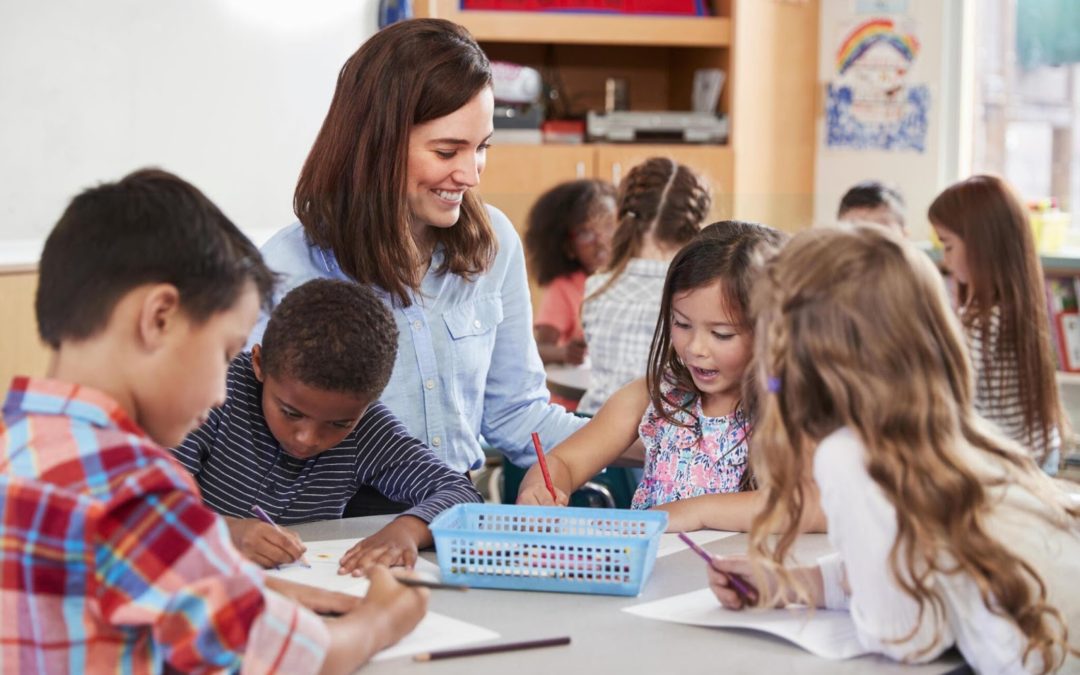In today’s interconnected world, the ability to speak multiple languages is increasingly valued and sought after. Bilingual education has emerged as a powerful tool not only for linguistic development but also for cognitive enhancement and cultural appreciation. For parents seeking to provide their children with the advantages of bilingualism, exploring nearby elementary schools offering language immersion programs is a promising avenue.
One such innovative institution leading the way in language immersion education is BeiBei Amigos. Their commitment to blending the best of Montessori and traditional educational approaches sets a high standard for language immersion programs. At BeiBei Amigos, children are immersed in an environment that nurtures not just fluency in Mandarin and Spanish, but also a profound appreciation for diverse cultures.
Understanding Language Immersion Programs
Language immersion programs are designed to provide students with a comprehensive education where a significant portion of the curriculum is taught in a target language, be it Spanish, Mandarin, French, or any other. These programs vary in intensity, ranging from partial immersion—where some subjects are taught in the target language—to full immersion, where the majority, if not all, subjects are taught in that language.
Exploring Bilingual Elementary Schools in Phoenix
For families residing in Phoenix, the quest for bilingual education options leads to a variety of bilingual elementary schools. Among the notable ones are those offering Spanish immersion programs, catering to parents seeking a strong foundation in the Spanish language.
BeiBei Amigos: A Beacon of Language Immersion Excellence
BeiBei Amigos stands out as an exemplar of innovative bilingual education. Their unique approach combines the principles of Montessori education with traditional teaching methods, fostering a love for language learning while nurturing essential academic skills.
The transformative power of BeiBei Amigos’ Language Immersion Programs lies not just in linguistic proficiency but also in holistic development. Children are immersed in an environment that encourages exploration, critical thinking, and cultural appreciation. Through this comprehensive approach, students develop linguistic fluency alongside cognitive flexibility, problem-solving abilities, and a global perspective.
Benefits of Bilingual Education
The advantages of bilingual education extend far beyond language proficiency. Research indicates numerous cognitive, academic, and socio-cultural benefits for children enrolled in bilingual programs:
Cognitive Advantages
- Enhanced Problem-Solving Skills: Bilingual individuals often exhibit advanced problem-solving and multitasking abilities due to their increased cognitive flexibility.
- Improved Memory Retention: Learning and switching between languages stimulate brain activity, leading to improved memory and information processing.
- Greater Creativity: Bilingualism has been linked to increased creativity and divergent thinking, fostering a more innovative mindset.
Academic Benefits
- Higher Academic Achievement: Students in bilingual programs often perform as well as or better than their monolingual peers in standardized tests.
- Improved Focus and Attention: Bilingual individuals tend to have better attention control and task-switching abilities, contributing to academic success.
Socio-Cultural Proficiency
- Cultural Understanding: Bilingual education promotes cultural awareness and empathy, fostering a deep appreciation for diverse perspectives.
- Enhanced Communication Skills: Proficiency in multiple languages enhances communication abilities, facilitating connections and understanding in a multicultural society.
Finding the Right Fit
When exploring nearby elementary schools offering bilingual programs, parents need to consider various factors:
- Language Intensity: Determine whether the program offers partial or full immersion in the target language.
- Teaching Approach: Investigate the teaching methods and curriculum to ensure they align with your child’s learning style.
- Cultural Exposure: Assess how the program integrates cultural activities and experiences to enrich the learning journey.
Conclusion
The power of bilingual education extends beyond language proficiency—it shapes young minds, enhances cognitive abilities, and fosters a deeper understanding of the world. Schools like BeiBei Amigos exemplify the transformative potential of language immersion programs, creating an environment where children thrive academically, linguistically, and culturally.
As parents seek nearby elementary schools with Spanish immersion programs or other bilingual offerings, the decision-making process involves considering various elements to ensure the best fit for their child’s educational journey. Embracing bilingual education opens doors to a world of opportunities, empowering children to excel in an increasingly interconnected global society.
Ultimately, the pursuit of bilingual education is a gateway to a future where linguistic diversity, cultural understanding, and academic excellence converge, preparing children to become global citizens equipped to navigate the complexities of our interconnected world.

